Filter by
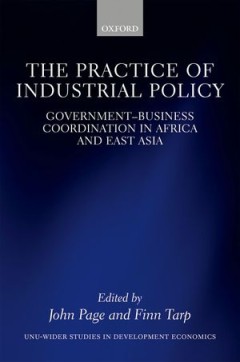
The Practice of industrial Policy : Government—Business Coordination in Afr…
Much of the information relevant to policy formulation for industrial development is held by the private sector, not by public officials. There is, therefore, fairly broad agreement in the development literature that some form of structured engagement—often referred to as close or strategic coordination—between the public and private sectors is needed, to assist in the design of appropriate…
- Edition
- -
- ISBN/ISSN
- 9780198796954
- Collation
- -
- Series Title
- -
- Call Number
- 650 PRA
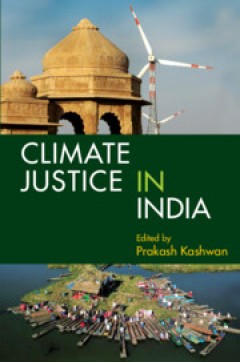
Climate Justice in India
My ongoing engagements with international and national debates on climate justice are a result of an intellectual journey over the past two decades that has brought me time and again to the complex intersections of environmental protection and social justice. Market-based solutions became the backbone of ostensible global responses to climate change at the United Nations Climate Change Conferen…
- Edition
- Volume 1
- ISBN/ISSN
- 9781009171908
- Collation
- -
- Series Title
- -
- Call Number
- 363.738 KAS c
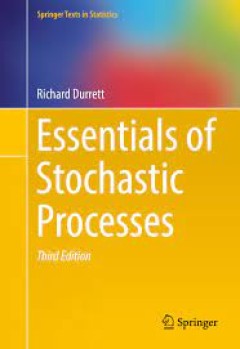
Essentials of Stochastic Processes
Building upon the previous editions, this textbook is a first course in stochastic processes taken by undergraduate and graduate students (MS and PhD students from math, statistics, economics, computer science, engineering, and finance departments) who have had a course in probability theory. It covers Markov chains in discrete and continuous time, Poisson processes, renewal processes, martinga…
- Edition
- -
- ISBN/ISSN
- 978-3-319-45614-0
- Collation
- 26 b/w illustrations
- Series Title
- -
- Call Number
- -
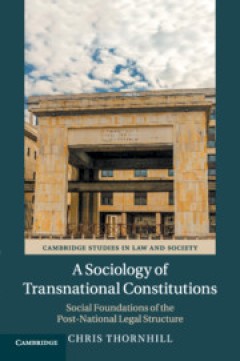
A Sociology of Transnational Constitutions: Social Foundations of the Post-Na…
This book is the second in a series of volumes intended to provide a broad sociological analysis of the foundations of constitutional law.
- Edition
- -
- ISBN/ISSN
- 9781139833905
- Collation
- -
- Series Title
- -
- Call Number
- 342 THO s
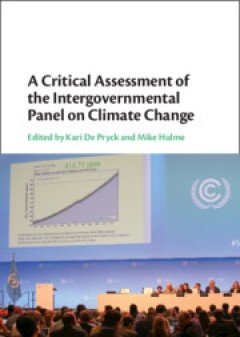
A Critical Assessment of the Intergovernmental Panel on Climate Change
The Intergovernmental Panel on Climate Change (IPCC) project is simultaneously indispensable and near impossible. Established over 30 years ago by governments to assess policy relevant knowledge, the IPCC is an essential bridge from science to policymaking.
- Edition
- -
- ISBN/ISSN
- 9781009082099
- Collation
- -
- Series Title
- -
- Call Number
- 363.7 PRY c
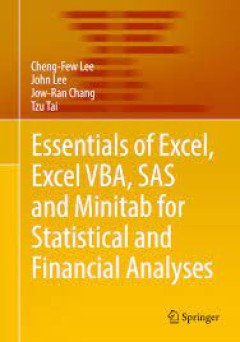
Essentials of Excel, Excel VBA, SAS and Minitab for Statistical and Financial…
This introductory textbook for business statistics teaches statistical analysis and research methods via business case studies and financial data using Excel, Minitab, and SAS. Every chapter in this textbook engages the reader with data of individual stock, stock indices, options, and futures. One studies and uses statistics to learn how to study, analyze, and understand a data set of partic…
- Edition
- -
- ISBN/ISSN
- 978-3-319-38867-0
- Collation
- 125 b/w illustrations, 781 illustrations in colour
- Series Title
- -
- Call Number
- -

Sustainable Indoor Lighting
Serving to maximize reader insights into the use of sunlight – considering light transfer, application to indoor illumination and in particular to museum lighting – in the color rendering properties of light sources and the architectural aspects for natural indoor lighting, the final part of this boo collects other related but important elements including architectural issues, environmental…
- Edition
- -
- ISBN/ISSN
- 978-1-4471-6633-7
- Collation
- X, 355
- Series Title
- Green Energy and Technology
- Call Number
- -
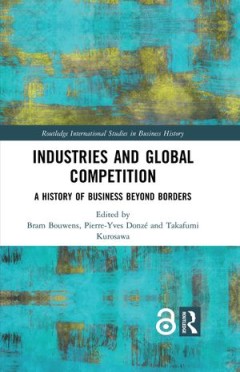
Industries and Global Competition : A History of Business Beyond Borders
Changes in the dynamics of economic activities since the last decades of the 20th century have yielded major changes in the composition of industries and the division of labor and production across different regions of the world. Despite these shifts in the global economy, some industries have remained competitive even without relocating their operations overseas. Industries and Global Competit…
- Edition
- -
- ISBN/ISSN
- -
- Collation
- -
- Series Title
- -
- Call Number
- 650
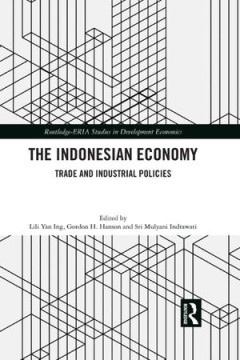
The Indonesian Economy :Trade and Industrial Policies
Against the backdrop of growing anti-globalisation sentiments and increasing fragmentation of the production process across countries, this book addresses how the Indonesian economy should respond and how Indonesia should shape its trade and industrial policies in this new world trade environment. The book introduces evaluation not on tariffs but on new trade instruments such as non-tariff meas…
- Edition
- -
- ISBN/ISSN
- -
- Collation
- -
- Series Title
- -
- Call Number
- 650
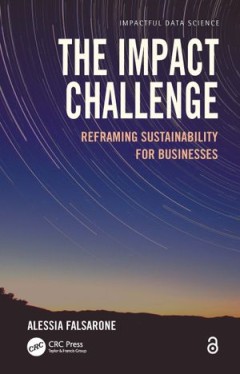
The Impact Challenge : Reframing Sustainability for Businesses
This book explores the role of businesses in delivering positive societal and financial outcomes as they seek to bridge the gap between short-term organizational behaviors and long-range sustainability commitments. By addressing the inevitable data challenges associated with the strategic integration of a sustainability mindset, it enables faster adoption of social, environmental and governance…
- Edition
- -
- ISBN/ISSN
- 9781000562859
- Collation
- -
- Series Title
- -
- Call Number
- 650
 Computer Science, Information & General Works
Computer Science, Information & General Works  Philosophy & Psychology
Philosophy & Psychology  Religion
Religion  Social Sciences
Social Sciences  Language
Language  Pure Science
Pure Science  Applied Sciences
Applied Sciences  Art & Recreation
Art & Recreation  Literature
Literature  History & Geography
History & Geography